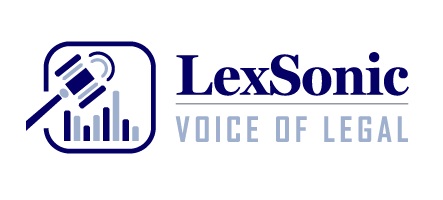What is the Legal Tech Ecosystem?
26-Aug-2025
Legal Technology >> Technology
An ecosystem is a community of complex networks of interconnected organisms or systems. In living organisms' case, it entails how they interact to form relationships in communities that provide security, food, shelter, emotional and physical support.
On the other hand, Tech ecosystems are an interconnected and interdependent network of diverse entities coming together to spur innovation in the tech environment pertaining to products and services in a sustainable manner.
The legal tech ecosystem encompasses the use of technology to innovate and improve legal services, encompassing areas like AI, document automation, and legal research platforms, with the goal of streamlining processes, enhancing efficiency, and improving access to justice.
A technology ecosystem is also the collection of tech solutions that a particular company uses to run its business. It is about how these solutions connect.
There is a reason we call it an ecosystem — as opposed to just a “collection of apps” or “app stack,” for example. This is because the term “ecosystem” describes what tools you are using and how they interact with one another.
That same principle can be applied to your technology ecosystem: the key is to figure out how all the elements work together.
Benefits Of Using A Legal Tech Ecosystem:
Efficiency and Productivity:
Streamlined Processes:
Legal tech tools automate tasks like document generation, legal research, and workflow management, freeing up lawyers to focus on higher-level work.Faster Turnaround Times:
AI-powered tools can analyze large volumes of data and documents quickly, accelerating legal research and case preparation.Reduced Manual Effort:
Automation minimizes the need for manual tasks, leading to fewer errors and faster processing times.
Enhanced Client Experience:
Improved Communication:
Legal tech platforms facilitate better communication between lawyers and clients, providing updates and access to information in a timely manner.Greater Transparency:
Clients can see how their cases are progressing and what costs are involved, fostering trust and confidence.Personalized Legal Solutions:
Legal tech can help lawyers tailor their services to meet the specific needs of individual clients.
Risk Management:
Reduced Errors:
Automation and standardized processes can help minimize errors and improve accuracy in legal work.Better Compliance:
Legal tech tools can help legal professionals stay up-to-date on legal and regulatory changes, reducing the risk of non-compliance.Proactive Risk Identification:
AI-powered tools can identify potential risks early on, allowing legal professionals to take proactive measures to mitigate them.
Litigation Analytics:
Legal technology streamlines litigation analytics by analyzing vast amounts of case data, court decisions, and litigation trends to identify patterns, insights, and strategic opportunities. Litigation analytics platforms use data visualization tools to present information in visually intuitive formats, such as charts, graphs, and heat maps, enabling users to identify trends and correlations at a glance.
Practice Management:
Legal technology’s important impact can be felt in practice management as well, due to integrating and automating various administrative and operational tasks, such as timekeeping, billing, client intake, and matter management. Practice management software provides centralized dashboards and workflows for managing clients, matters, documents, and financials, improving organization and efficiency within law firms.
Examples of Legal Tech Tools:
Document Automation:
AI-powered platforms that automate the generation of legal documents, such as contracts and agreements.Case Management:
AI-powered conversational agents that can answer common legal queries and provide initial guidance to clients.Legal Research Platforms:
Comprehensive databases of case law, statutes, regulations, and legal commentary.Workflow Management Software:
Tools that help legal teams manage tasks, deadlines, and collaboration.Compliance and Regulatory Technology:
AI tools that help companies monitor regulatory changes and ensure compliance.Contract Lifecycle Management System: From requesting a contract to getting it approved, drafting to editing, initiating to execution by e-signing, and much more can all be done with the help of this software.
Litigation Analytics: Legal technology streamlines litigation analytics by analyzing vast amounts of case data, court decisions, and litigation trends to identify patterns, insights, and strategic opportunities. Litigation analytics platforms use data visualization tools to present information in visually intuitive formats, such as charts, graphs, and heat maps, enabling users to identify trends and correlations at a glance.
Legal Billing and Accounting Software: Simplifies the billing process, tracks time and expenses, and generates invoices.
E-Signature Solutions: Enable secure and legally binding electronic signatures, eliminating the need for physical signatures.
Final Thoughts On Legal Tech Ecosystem:
The best apps and integration for you will not necessarily be the most popular, expensive, or comprehensive ones. Adjust your tech ecosystem until it fits you just right. It will help you exceed your goals and boost your performance.
A world where all of your tech tools work together seamlessly, sharing data, automating tasks, and making workflows a breeze. That’s the nature of an ideal tech ecosystem.
With the right apps for you and the right integrations between them, you will be in the best position to run your business as smoothly as possible.
